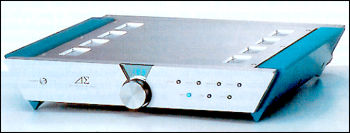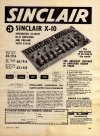Again. Blaming everything on marketing is why we have arguments between objectivists and subjectivists.
Genelec uses Infineon Class D products, unclear implementation. We can see through measurements that the Infineon Class D products can have high frequency variability based upon the load:
A blog for audiophiles about more objective topics. Measurements of audio gear. Reasonable, realistic, no snakeoil assessment of sound, and equipment.

archimago.blogspot.com
So it’s not marketing, it’s profit. It’s that Genelec and KEF aren’t putting in flagship Class D electronics in their speakers.




